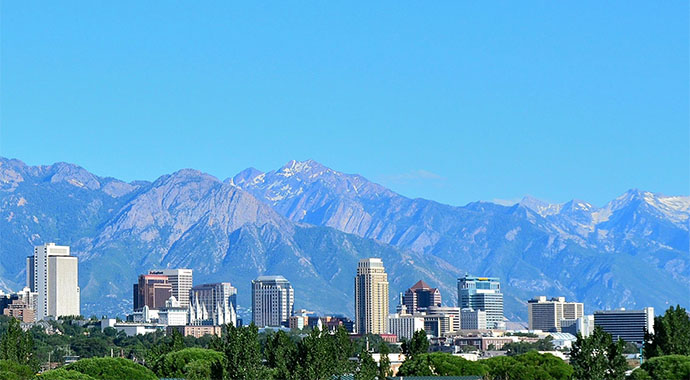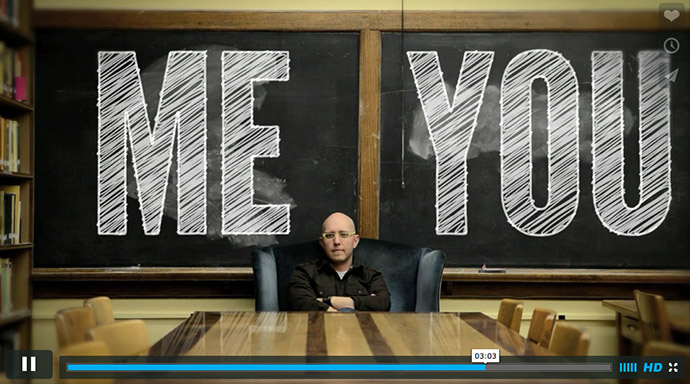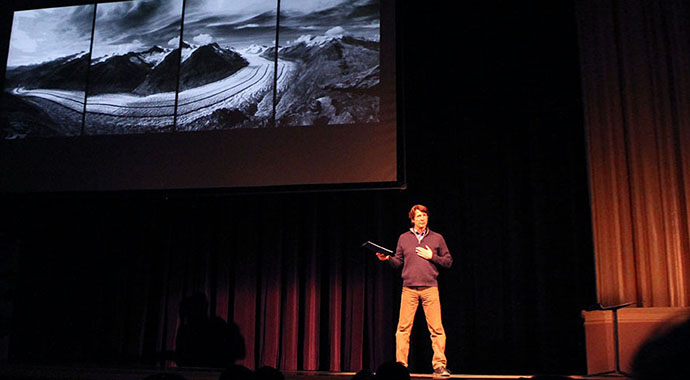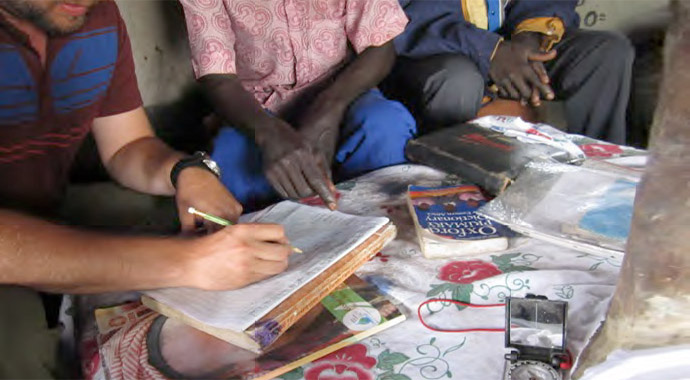Ogmius exchange
Selected Center Projects
Drivers of Adaptation in the American West | project website
Led by Professor Lisa Dilling

Despite gains in knowledge and improvements in responding to weather- and climate-related risks, communities continue to experience large economic losses from extreme events. Creating science that is more usable is one factor that can help to improve outcomes in this arena, but clearly other factors also constrain society’s adaptive capacity (or the ability of a system to better manage these risks). While much effort has been put into examining the barriers to adaptation, less is known about why communities are proactive in taking steps to reduce their vulnerability to these extremes. Our research has examined why communities across the West prepare for and adapt to natural hazards, to understand the underlying drivers of adaptive behavior at the community level. Municipalities in the West do exhibit a wide variety of adaptive actions in the face of weather and climate risk, despite similar exposure. However, the reasons for taking proactive action in the face of the risks are complex, and not explainable by a single factor such as economic status or population size. Future research will begin to examine how risk tolerance, individual “champions” for community action, cultural worldviews, and other social factors affect decisions and allow communities to proactively shape their risk profiles.
Shifting Frontier | project trailer
Led by Professor Ben Hale

Video clip from “Shifting Frontier” trailer.
The Shifting Frontier is a series of twelve short video episodes aimed to highlight the scientific, policy, and human dimensions of regionally important environmental issues, each with a connection to climate change. Rather than focusing on the forecasts and projections of climate science, however, the episodes are structured to introduce tricky ethical questions in an approachable manner.
By presenting ethical questions through relevant scenarios and concrete cases -- including stories from people on the ground, the testimony of scientists and scholars, and visual animations of the theoretical factors in play -- Prof. Benjamin Hale and grad student Alex Lee guide students and others into the complex terrain of philosophy. In so doing, ComET hopes to inspire deliberative engagement with friends and family and/or instructors and classmates that will enrich the wider public debate about how to address climate change.
Please visit our Vimeo page to view our Trailer. More information is forthcoming.
Table of Contents/Episode List:
- Introduction (3 minutes)
- Failing Snow: The Ski Industry and the Problem of Change
- Buried in Bedrock: The Question of Value in Conventional and Alternative Energy
- Water Woes: The Colorado River and the True Tragedy of the Commons
- Money for Nothing: Need and Excess in Las Vegas
- Borderline Crazy: Responsibility for Climate Refugees at the US/Mexico Border
- Snow from Sewage: Arizona Snow Bowl and the Traditional Diné
- Moving the Pieces: The Plight of the Pika and Assisted Colonization
- Our Children Have Brilliant Ideas: Planning for a No-Analog Future
- The World that Would Have Been: Non-identity and Future Generations
- What We Know and What We Do: Pine Beetles, Epistemic Uncertainty, and Moral Indeterminacy
- Walking a Razor’s Edge: Precaution and Risk
- Undoing the Damage: Geoengineering and Moral Trespass
- Short synopsis overview (3 minutes)
Audience: 18-30 year olds
Distribution: Vimeo, YouTube; also through integration into classroom curricula.
Shooting will span the West, and include stories from Arizona, Utah, Colorado, and New Mexico, as well as footage from California, Wyoming, Oregon, Idaho, and Washington.
To date, few have sought to carefully address the ethics of climate change in a public and accessible venue. If done well, our hope is that these discussions about fairness, rights, justice, and values can help facilitate a more robust dialogue as we face down serious change.
Our objectives in the short term are to finish the Shifting Frontier project, but our longer term objectives are to bring a suite of environmental and ethical questions to a wider audience through this short video format.
Inside the Greenhouse (ITG): Building Capacity for Creative Climate Communications | project website
Led by Professor Max Boykoff

Inside the Greenhouse sponsored a multimedia presentation by James Balog in April 2013.
Creative framing and storytelling of issues surrounding climate change through video, theatre, dance, and writing can connect a wider audience to the deep and pressing need to address climate change. Project leaders Max Boykoff (CIRES Fellow) in collaboration with Professors Rebecca Safran (Associate Professor, Ecology and Evolutionary Biology) and Beth Osnes (Assistant Professor, Department of Theater and Dance) have been producing events and classes over the past four years under the banner of the ‘Inside the Greenhouse’. Support for this work catalyzes creative climate communication and builds capacity among CU-Boulder undergraduate students in particular. Our efforts to engage our students and the public alike seek to help concerned citizens to grasp the challenges of making climate change meaningful for everyday people. Students are involved directly and collaboratively connecting work in the classroom to ‘real world’ applied contexts.
Wildfire Management and Mitigation Outreach in the Wildland-Urban Interface: Case Study and Survey Research in the western United States | project website
Led by Professor Deserai Crow

Due to rapid growth in the wildland-urban interface (WUI), the risk to lives and property from wildfires is increasing. While previous studies have identified factors that influence residents’ perceptions of wildfire risk and responsibility for mitigation, less research has been conducted on how risk mitigation information is disseminated to residents and its effect on their mitigation decisions. Using data from interviews with wildfire professionals, focus groups with residents, and surveys with wildfire professionals in the West, the Western Policy and Narratives Research Group is working to examine what types of risk mitigation information are used by fire managers to encourage wildfire mitigation on private property in the WUI, the perceived influence of such information, and the various types of programmatic decisions made by wildfire management agencies at the interface of outreach, mitigation, and regulation.
The Western Policy and Narratives Research Group is working with graduate students from Environmental Studies and Geography to examine the links between environmental policy actors, strategic use of information by stakeholders, and eventual policy and management decision outcomes. We pay particular attention to issues of importance to the American West such as water, public lands, natural hazards, among others.
Recent products include:
Crow, D.A., Dixon, L., Koebele, E., Kroepsch, A., Schild, R., & Huda, J. Information, Resources, and Management Priorities: Agency Outreach and Mitigation of Wildfire Risk in the West. Under Review, Risk, Hazards & Crisis in Public Policy. This paper was presented at: Sustaining Colorado Watersheds conference, October 2014; The Politics and Economics of Wildfire Conference, University of California Santa Barbara Bren School of Environmental Science & Management, October 2014; and Western Political Science Association conference, April 2015.
Koebele, E., Crow, D.A., Dixon, L., Schild, R., Kroepsch, A., & Clifford, K. Mitigation Information Dissemination and Citizen Entrepreneurs in the Wildland-Urban Interface: A Cross-Case Analysis in Colorado. Under Review, Society and Natural Resources. This paper was presented at: Western Political Science Association conference, April 2014.
Media and Climate Change Observatory (MeCCO) | project website
Led by Professor Max Boykoff

This figure tracks newspaper coverage of climate change or global warming in 50 newspapers across 25 countries and 6 continents. Updated through March 2015.
This observatory analyzes traditional/legacy media representations of climate change. The group of CU-Boulder graduate student and postdoctoral researchers (along with CU-Boulder Professor Max Boykoff and collaborators in Japan and Spain) endeavor to comprehensively aggregate, monitor, appraise and critically examine media coverage – from newspapers, tv and radio to new, social and digital media – that influence the spectrum of possibility for effective responses to ongoing climate challenges. At present, the MeCCO team monitors coverage monthly in fifty selected sources globally, and eight country profiles (Australia, Canada, India, Japan, New Zealand, Spain, UK, US). In the future the MECCO team plans to scale analyses out to provide resonant and useful information for a range of consumers, from local practitioners to elected officials and academic researchers.
Through ongoing discussions with colleagues in intersecting research communities, as well as through interactions with practitioners (e.g. political actors, resource managers) about areas of research need, the absence of a central hub (or observatory) where methodologically-consistent and high-quality monitoring, aggregation and assessment of media communications on climate change in the social sciences has been a striking shortfall amidst comprehensive monitoring of dimensions of climate change from the natural sciences.
Red Cross/Red Crescent Climate Centre Internship | project website
Led by Professor Max Boykoff

Red Cross/Red Crescent intern, Drew Zackary, working with community members in Uganda.
Through collaborations between CIRES CSTPR and the Environmental Studies Program, CU-Boulder has partnered with the Red Cross/Red Crescent Climate Centre (RCRCCC) to place graduate students in locations in eastern and southern Africa for approximately three months each summer. This collaborative program targets improvements in environmental communication and adaptation decision-making as well as disaster prevention and preparedness in the humanitarian sector. It connects humanitarian practitioners from the Red Cross/Red Crescent Climate Centre – an affiliate of the International Federation of Red Cross and Red Crescent Societies – with graduate student researchers at the University of Colorado who are interested in science-policy issues. Through this program we strive to accomplish three key objectives:
- To improve the capacity of humanitarian practitioners within International Federation of Red Cross and Red Crescent Societies network at the interface of science, policy and practice;
- to help meet needs and gaps as well as work as a research clearing house in environmental communication and adaptation decision-making in response to climate variability and change, as identified through Red Cross/Red Crescent Climate Centre priorities and projects;
- to benefit graduate students by complementing the classes and research that they undertake in their graduate program with real-world experience in climate applications and development work.
Students design their own program of work in conjunction with CU-Boulder Director Max Boykoff and RCRCCC supervisors. The RCRCCC supervisors liaise with specific IFRC field offices to identify potential projects and placements. Placements in the field address specific needs identified by IFRC field staff related to challenges of science communication and adaptation decision-making.
Selected interns are provided with round-trip airfare to their field site, with travel to be organized through the University of Colorado. Interns also receive a stipend to offset costs of in-country housing, food, and transportation. The internship is unpaid.
This CU-Boulder program has now worked for two summers in locations of eastern and southern Africa, and has placed these students:
- 2014 – Drew Zackary (Anthropology PhD), Apac and Otuke, Uganda
- 2014 – Leslie Dodson (ATLAS PhD), Lusaka, Zambia and Capetown, South Africa
- 2013 – Amy Quandt (ENVS PhD), Isiolo, Kenya
- 2013 – Arielle Tozier de la Poterie (ENVS PhD), Soroti, Uganda
- 2013 – Kanmani Venkateswaran (ENVS, MS), Lusaka, Zambia
Projects have involved topics such as analysis of uses of regional climate forecasts to trigger anticipatory humanitarian action, and examinations of ways to improve the linking of science-based forecasts with humanitarian decisions. More information on the specifics of all these placements and activities can be found here. |







